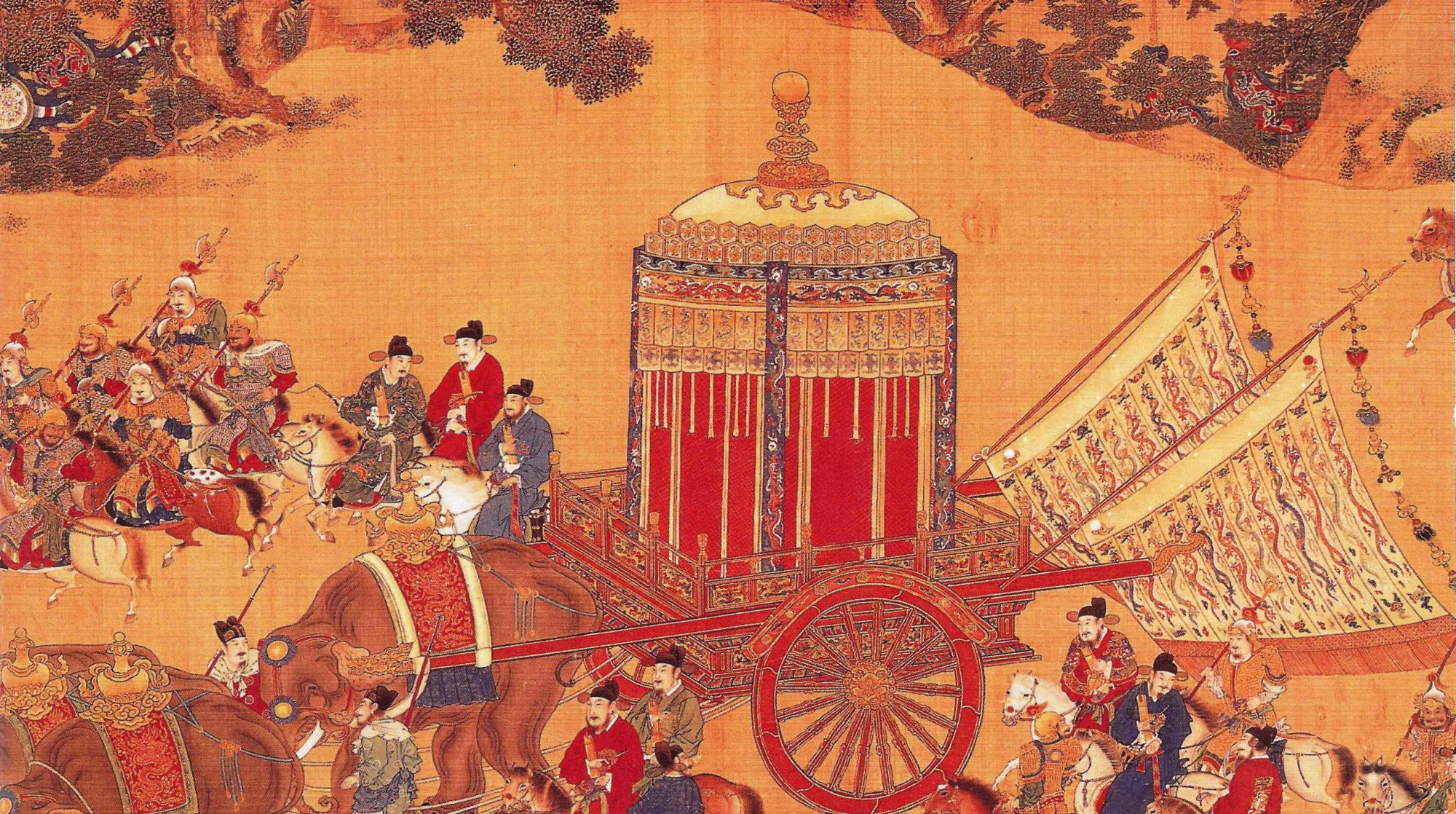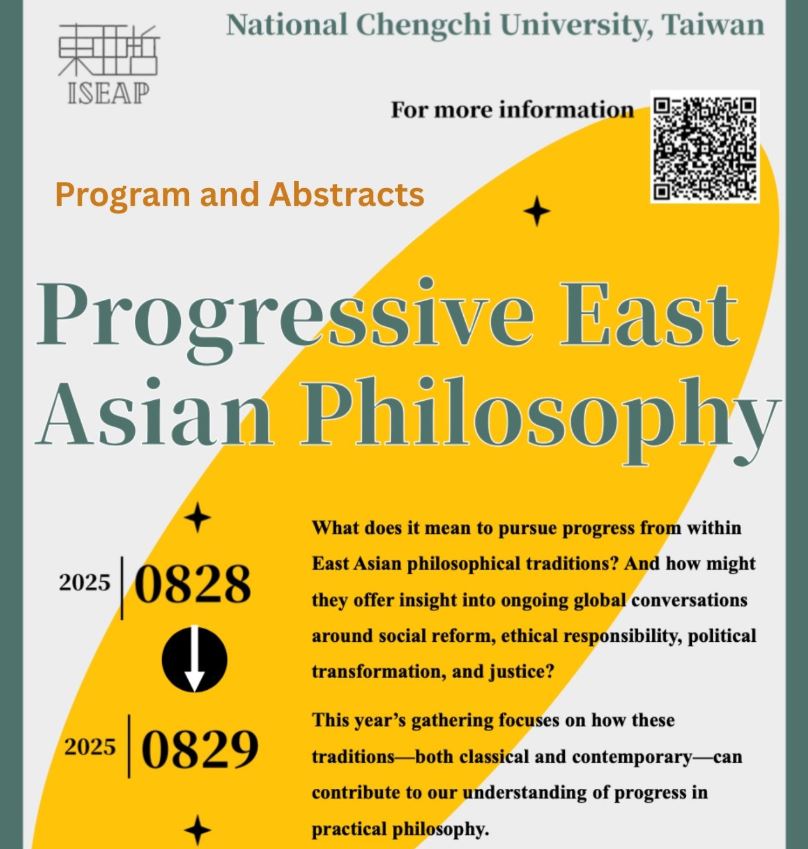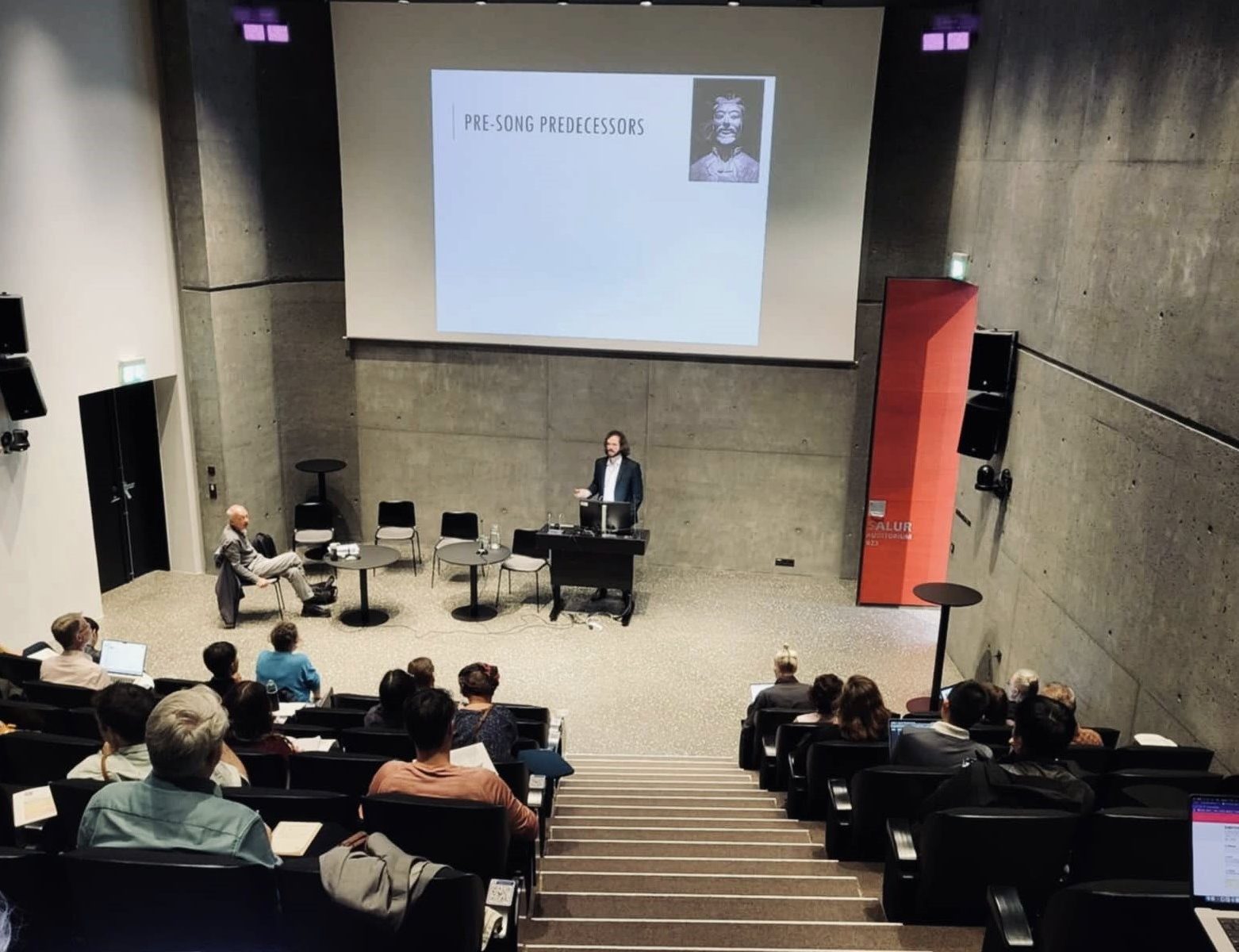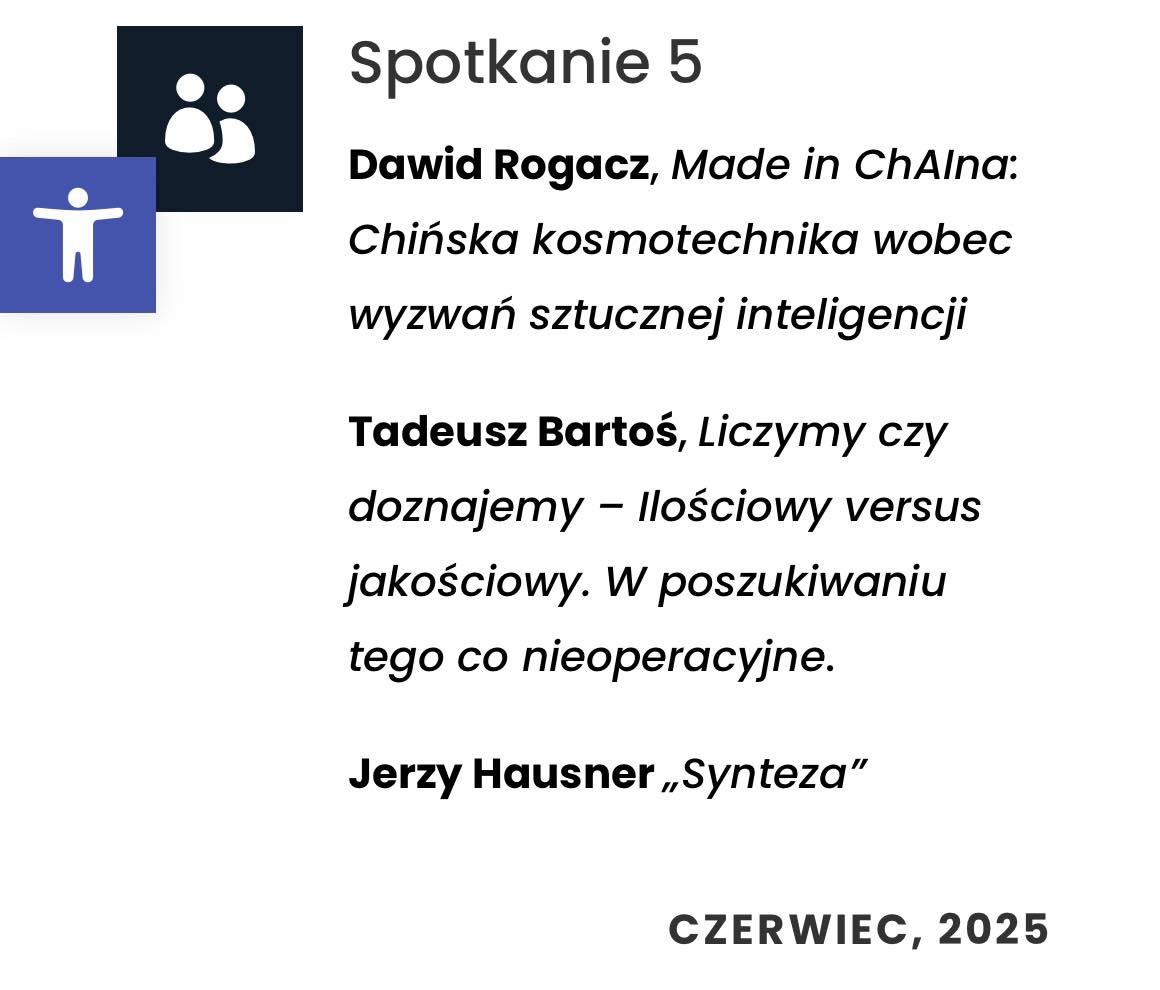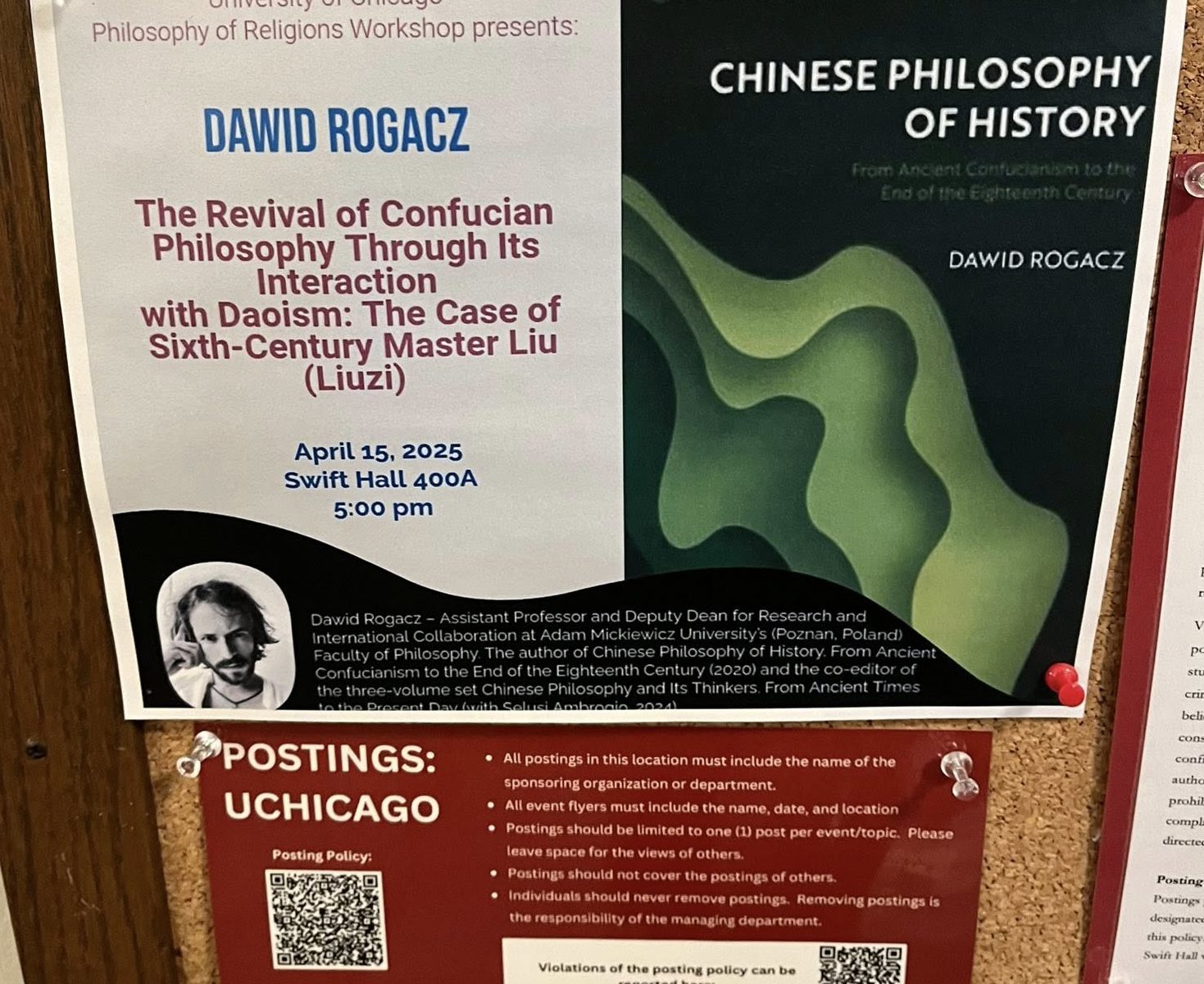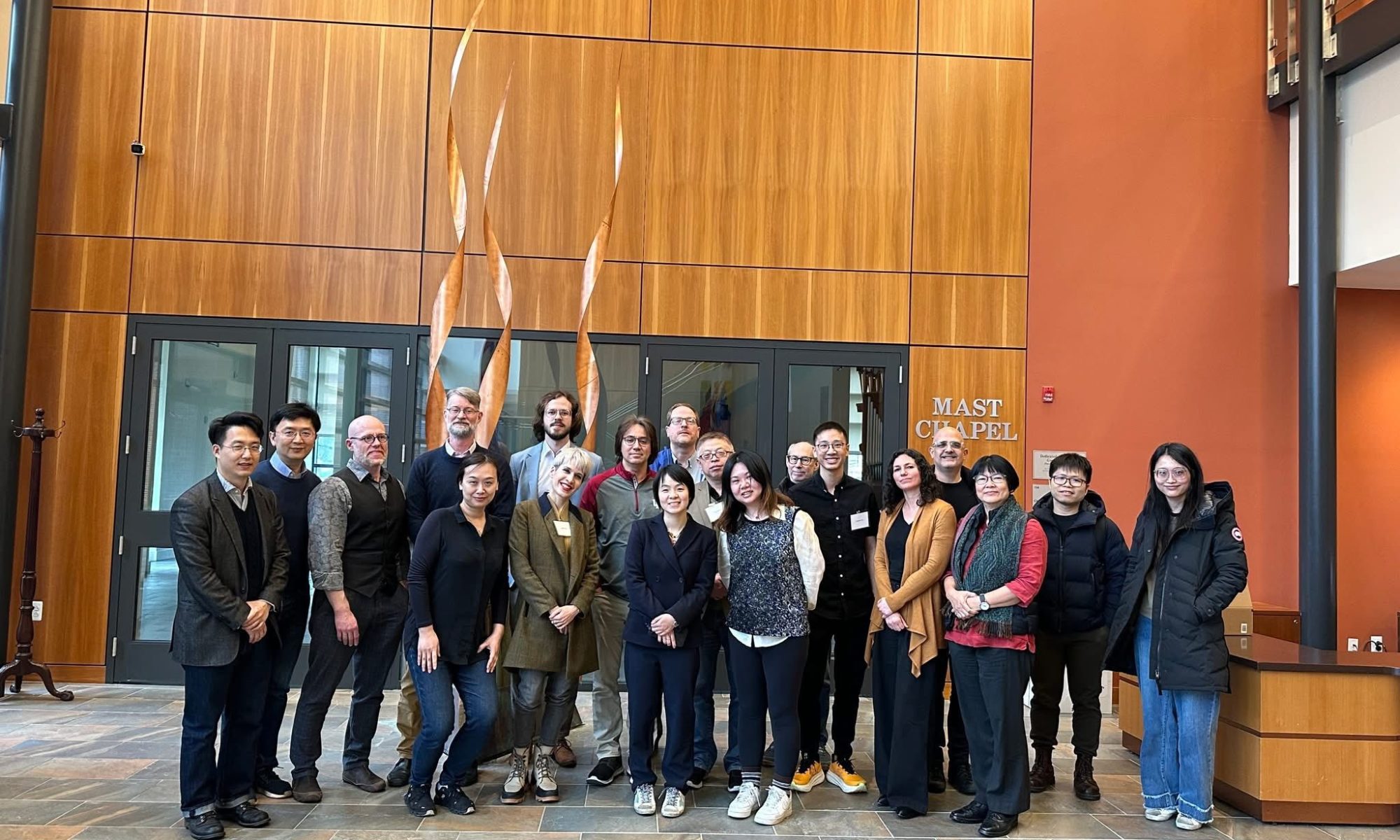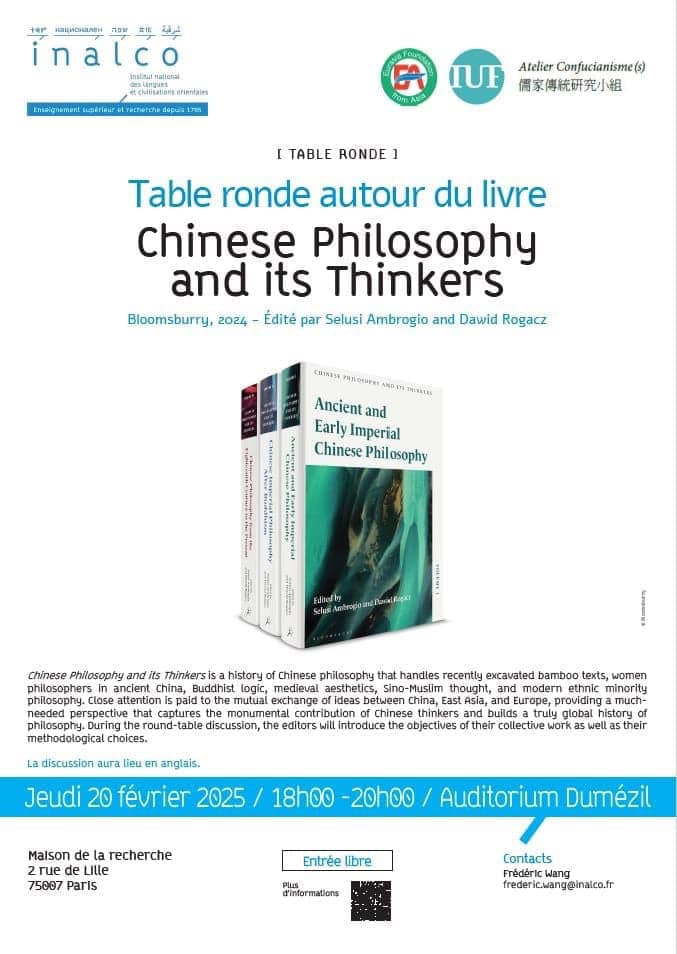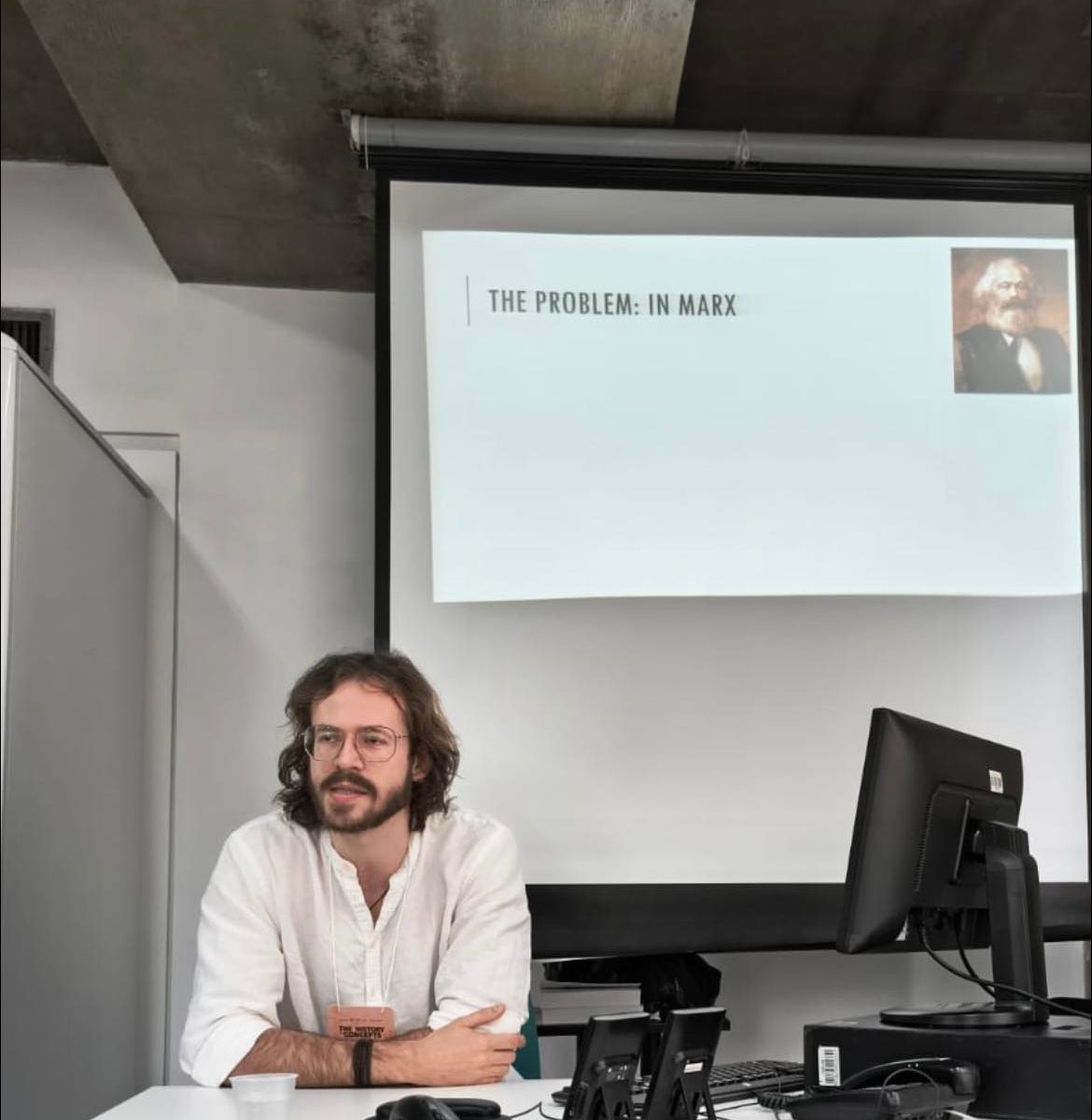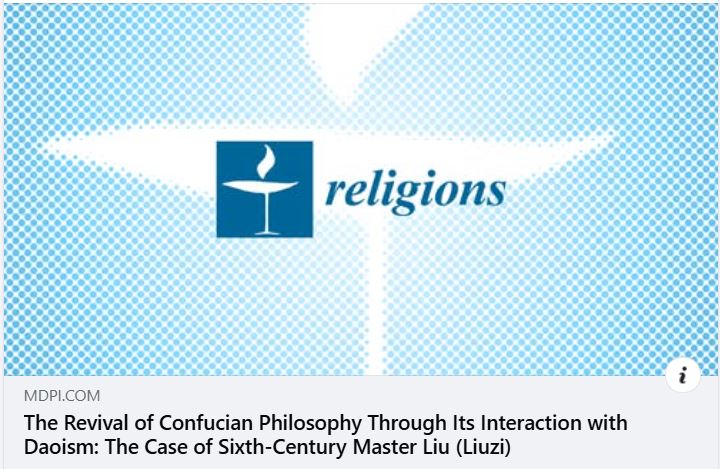Dr. Dawid Rogacz participated in the International Society of East Asian Philosophy conference under the title “Progressive East Asian Philosophy” in Taipei (August 28-29, 2025) (program) and presented the paper: “Familiarizing (with) alternatives: Same-sex adoption from a Confucian perspective”.
European Summer of Chinese Philosophy 2025
Dr. Dawid Rogacz actively joined the interconnected conferences within the European Summer of Chinese Philosophy 2025 initiative.
Dr. Rogacz first participated in the 24th International Society for Chinese Philosophy Conference in Ljubljana (June 20-23, 2025) with the talk “Filial Enhancement? Confucian Stance on the Ethical Limits of Genome Modification” and the book launch on Chinese Philosophy and Its Thinkers (see program).
Following this, he joined the 5th Biennial Conference of the European Association for Chinese Philosophy (June 26-28, 2025) in Reykjavik with the paper “Listening to the Breath of History: On Wang Fuzhi’s Historical Qixue” and another book launch (see program).
Lastly, between June 9 and 11, 2025, Dr. Rogacz participated in the Society for Asian and Comparative Philosophy 57th Conference in Leiden with the paper “Nurturing the Nurture: Confucian Perspectives on Assisted Reproduction” (program).
Open Eyes Economy seminar
Dr. Dawid Rogacz participated in the Mind-Machine/Deconstruction Seminar series, organized by the Open Eyes Economy network and the Foundation for Public Economy and Administration at Krakow University of Economics. Dr. Rogacz, followed by Prof. Tadeusz Bartoś and former Deputy Prime Minister, Prof. Jerzy Hausner, talked about Chinese philosophical perspectives on artificial intelligence.
Polish-Scandinavian collaboration
Dr. Rogacz participated in the meeting between the Polish Young Scholars Academy (Akademia Młodych Uczonych PAN) and the Young Academy of Sweden, associated with the Royal Swedish Academy of Sciences, organized in Warsaw on April 23-24, 2025. During the meeting, dr Rogacz actively joined the discussion about academic freedom in Poland and Sweden (link), related to the Stockholm Charter for Academic Freedom.
On April 25, 2025, as the Vice-dean for research and international collaboration, he joined the discussions over closer co-operation between Adam Mickiewicz University and the University of Southern Denmark in Odense, including the perspectives of co-teaching between respective faculties of philosophy.
Lecture at the University of Chicago
Upon the invitation of the University of Chicago and its Council on Advanced Studies (within the Philosophy of Religions workshop series), Dr. Rogacz gave a lecture on the revival of Confucian Philosophy through its interaction with Daoism in sixth-century China. More info here.
Rutgers Workshop on Chinese Philosophy
Dr. Rogacz participated in the 7th Rutgers Workshop on Chinese Philosophy (RWCP) entitled “Moral Conflict in Early Chinese Philosophy,” in New Brunswick, NJ, on April 10-11, 2025. Dr. Rogacz, the only European participant, discussed “Weighing (quan) in early Confucian philosophy.” The workshop’s website is available here.
O filozofii chińskiej w radiowej Jedynce
Dr Rogacz był gościem audycji Eureka w Pierwszym Programie Polskiego Radia, gdzie mówił m.in. o współczesnym znaczeniu filozofii chińskiej, jej nauczaniu i badaniach. Rozmowa zaczyna się od ok 14. minuty nagrania: link.
Book launch at INALCO
Dr. Dawid Rogacz and Dr. Selusi Ambrogio held a book launch around their three-volume set „Chinese Philosophy and Its Thinkers” hosted by Institut National des Langues et Civilisations Orientales (INALCO) in Paris on 20th February 2025.
History of Concepts Conference, Rio
Dr. Dawid Rogacz gave the talk, “The concept of undeveloped socialism: a useful myth, a resisting reality,” within the panel Making/Unmaking Myths: Conceptual Histories from 20th Century China during the 25th History of Concepts conference, Rio de Janeiro (Dec. 5-7, 2024).
Master Liu: The Revival of Confucian Philosophy in the Sixth-Century
Dr. Dawid Rogacz has published a paper offering the first English-language philosophical treatment of Master Liu (Liuzi 劉子)—a treatise that gives a unique insight into the intellectual life of sixth-century China. The article argues that Liuzi integrated Confucian moral philosophy with selected Daoist ideas and responded to post-Buddhist transformations of key categories of Chinese thought in a manner that anticipates many solutions characteristic of Neo-Confucian lixue. The paper, published in the special issue of the Religions journal, is openly available under the link.
